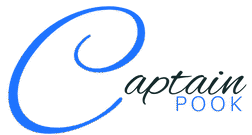Most professionals spend their job search hunting through posted openings on company websites and job boards. But here’s what might surprise you: research consistently shows that 70-80% of jobs never get advertised publicly. These positions get filled through internal networks, referrals, and direct outreach before they ever hit the market.
This hidden job market represents your biggest opportunity for career advancement, yet most people never learn how to access it. Understanding and leveraging these invisible pathways can transform your career trajectory and help you land roles that align perfectly with your goals.
Why Companies Don’t Always Post Jobs
Before diving into strategies, it’s worth understanding why this hidden market exists. Companies avoid public job postings for several compelling reasons:
Cost and Time Savings: Posting jobs publicly often results in hundreds of unqualified applications. Sorting through these takes significant time and resources. When companies can find qualified candidates through internal networks or referrals, they save money on recruiting fees and HR overhead.
Better Quality Candidates: Employee referrals typically yield higher-quality hires who stay longer and perform better. When someone’s professional reputation is on the line through a referral, they’re likely to recommend only strong candidates.
Speed to Fill: Internal promotions or referrals can fill positions weeks faster than traditional hiring processes. In competitive markets, this speed advantage is crucial.
Cultural Fit: Candidates who come through internal networks often understand the company culture better, leading to smoother integration and higher retention rates.
Building Your Professional Intelligence Network
Success in the hidden job market starts with developing what I call “professional intelligence” – staying connected to industry trends, company changes, and emerging opportunities before they become public knowledge.
Industry Associations and Professional Groups
Join relevant professional associations in your field. These organizations host networking events, publish industry reports, and maintain job boards that often feature opportunities not found elsewhere. More importantly, they connect you with professionals who hear about openings first.
Don’t just join – participate actively. Volunteer for committees, attend local chapter meetings, and contribute to discussions. The goal isn’t immediate job leads but building relationships with people who might think of you when opportunities arise.
Alumni Networks
Your school’s alumni network represents one of your most underutilized resources. Alumni often feel a natural inclination to help fellow graduates, creating an instant connection point. Many schools maintain alumni directories and host networking events specifically designed to facilitate these connections.
Reach out to alumni working at companies that interest you. Most are willing to share insights about their organizations and may alert you to upcoming openings. Even if they can’t help directly, they often know someone who can.
Industry Events and Conferences
Professional conferences, trade shows, and industry meetups are goldmines for hidden opportunities. Companies often use these events to identify potential hires informally. The person you chat with during a coffee break might mention their team is expanding, giving you advance notice of opportunities.
Prepare for these events strategically. Research attendee lists, identify key people you want to meet, and prepare thoughtful questions about industry trends rather than immediately asking about job openings.
The Art of Informational Interviewing
Informational interviews remain one of the most effective ways to access the hidden job market, yet many professionals either avoid them or conduct them poorly.
Setting Up Successful Informational Interviews
When requesting informational interviews, be specific about your goals and respectful of people’s time. Instead of saying “I’d love to pick your brain,” try something like: “I’m researching trends in data analytics within healthcare companies. Would you be available for a 20-minute phone call to share your perspective on how the field is evolving?”
This approach demonstrates you’ve done your homework and have specific goals, making people more likely to agree to meet with you.
Making the Most of the Conversation
During informational interviews, focus on gathering insights rather than asking for jobs directly. Ask about industry challenges, company culture, required skills, and career progression paths. Questions like “What skills do you see becoming more important in this field?” or “What challenges is your team facing that might require additional expertise?” often reveal upcoming hiring needs.
Always ask for additional connections. End each conversation by asking, “Who else would you recommend I speak with to learn more about this field?” This creates a natural pathway to expand your network exponentially.
Following Up Effectively
Send personalized thank-you notes within 24 hours, referencing specific insights from your conversation. Share relevant articles or resources that might interest them. This follow-up keeps you top-of-mind and demonstrates your continued engagement with the field.
Leveraging Social Media and Digital Presence
Your digital presence plays a crucial role in accessing hidden opportunities. Companies and recruiters increasingly use social media to identify potential candidates before posting jobs publicly.
LinkedIn Optimization
Your LinkedIn profile should tell a compelling story about your professional journey and future aspirations. Use keywords relevant to your target roles, but weave them naturally into your experience descriptions and summary.
Engage actively with content in your field. Comment thoughtfully on posts from industry leaders, share relevant articles with your insights, and publish your own content occasionally. This activity increases your visibility and positions you as an engaged professional in your field.
Building Thought Leadership
Consider writing articles or blog posts about industry trends, sharing insights from your experience, or offering solutions to common challenges in your field. This content marketing approach attracts attention from potential employers and demonstrates your expertise.
You don’t need to be a renowned expert to share valuable insights. Writing about lessons learned from projects, observations about industry changes, or practical tips for common challenges can establish your credibility and attract opportunities.
Direct Company Outreach
Sometimes the most direct approach works best. Research companies where you’d like to work and reach out proactively, even if they don’t have posted openings.
Research-Driven Outreach
Before reaching out, thoroughly research the company’s recent developments, challenges, and growth areas. Look for news articles, company blog posts, recent hires, or expansion announcements that might indicate upcoming needs.
Craft personalized messages that demonstrate your knowledge of their business and offer specific value. Instead of saying “I’m interested in working for your company,” try “I noticed your recent expansion into the Southeast market. Having managed similar geographic expansions at my current company, I’d welcome the opportunity to discuss how my experience might support your growth plans.”
Timing Your Outreach
Pay attention to industry cycles and company calendars. Many companies do strategic planning and budgeting in the fourth quarter, making late fall an ideal time for outreach about roles that might open in the new year. Similarly, after companies announce new initiatives or funding rounds, they often have increased hiring needs.
Converting Hidden Opportunities Into Job Offers
Finding hidden opportunities is just the first step. Converting them into actual job offers requires strategic follow-through.
Creating Urgency and Interest
When you learn about potential openings through your network, respond quickly but thoughtfully. Express genuine interest while highlighting specific ways you could add value. Reference mutual connections and demonstrate your knowledge of the company’s needs.
Navigating Informal Interview Processes
Hidden market opportunities often involve less formal interview processes. You might have coffee meetings, phone conversations, or brief office visits that feel casual but are actually evaluative. Treat every interaction professionally while maintaining a natural, conversational tone.
Negotiating When You Have Inside Information
Your advance knowledge of company needs and challenges puts you in a stronger negotiating position. You understand their pain points and can position yourself as the solution, often justifying higher compensation or better terms.
Measuring Your Hidden Market Success
Track your efforts to ensure you’re investing time in the most productive activities. Monitor metrics like the number of informational interviews conducted monthly, new connections made at industry events, and follow-up conversations that result from your outreach efforts.
The hidden job market rewards consistent, strategic effort over time. Building the relationships and reputation that open these doors takes months or years, not weeks. Start building your hidden market presence now, even if you’re currently satisfied with your job. The strongest position to job search from is when you don’t desperately need one.
Remember, accessing the hidden job market isn’t about finding shortcuts or circumventing fair hiring practices. It’s about building genuine professional relationships, developing industry expertise, and positioning yourself where opportunities naturally emerge. The most successful professionals understand that career advancement happens through relationships, reputation, and strategic visibility long before job applications ever get submitted.
By investing in these hidden market strategies, you’ll not only discover more opportunities but also build a professional network that supports your entire career journey. The jobs you find this way often offer better cultural fit, stronger growth potential, and more satisfying work because they’re based on mutual understanding and shared professional values rather than just matching keywords on a job description.



